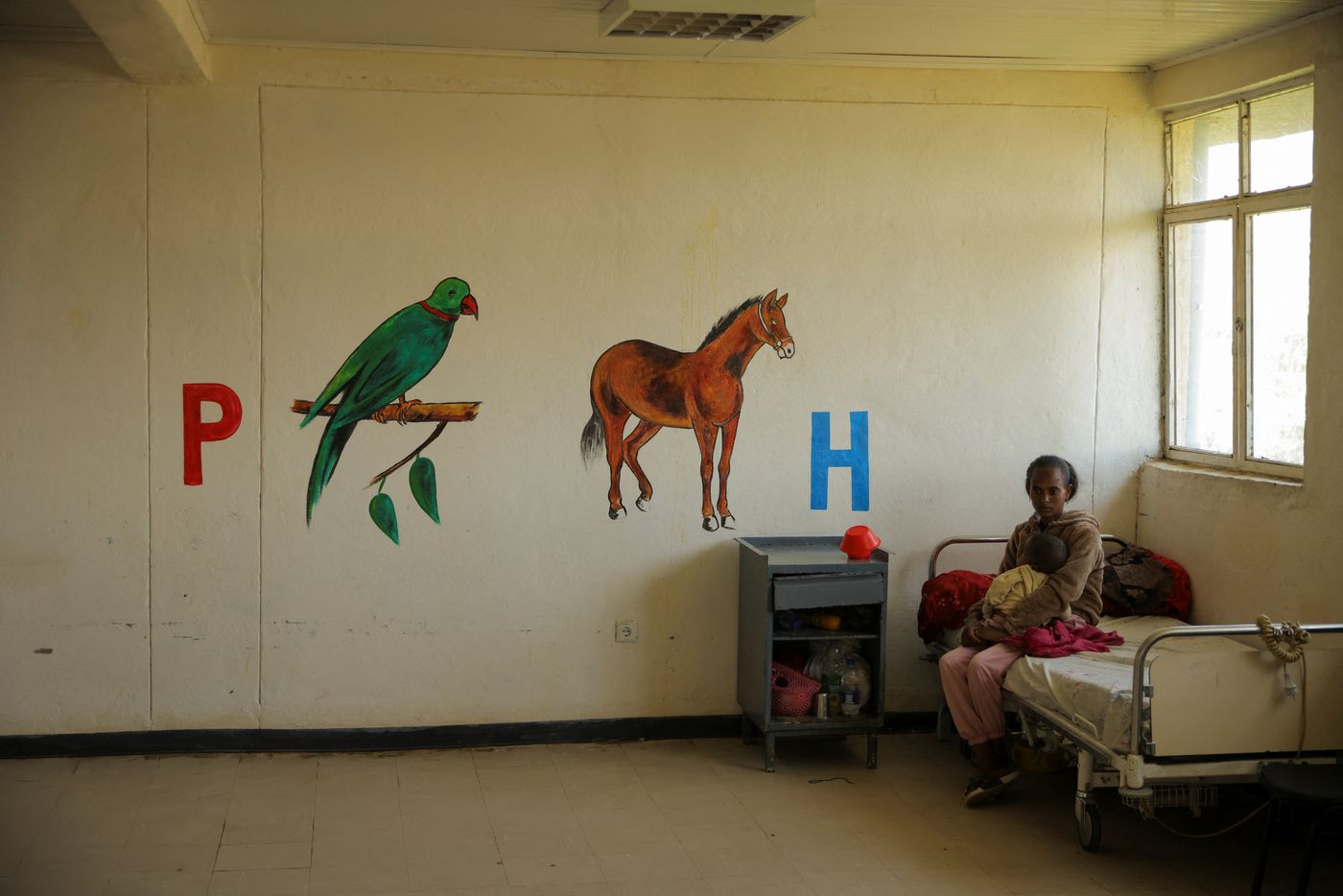Megatrends Afrika: How is the new Trump administration being discussed in Ethiopia and the Horn of Africa?
Dr Demissie: It was clear since the beginning of his election campaign that neither Africa nor the Horn of Africa would be a primary focus for Trump. However, the scale and speed of the aid suspension—mainly from USAID—were unprecedented. This suspension will have disastrous consequences for the various crises affecting many parts of the Horn of Africa. Millions of people who benefit from programs in health, education, agriculture, and humanitarian assistance are already being impacted. Especially countries like Sudan and Somalia, as well as regions such as Tigray and Darfur, will be significantly affected. But what’s more: this may signal the beginning of a broader decline in international aid and support. Such a development would intensify both interstate and intrastate tensions, exacerbating the region's fragility. It could also escalate disputes over resources at both the subnational and national levels.
Megatrends Afrika: How do policymakers in Ethiopia perceive the situation?
Dr Demissie: The overall impression is that this situation could lead to disaster. A minority of policymakers in the debate believe this might create an opportunity for greater self-reliance. However, it's difficult to see how self-reliance can be achieved with such a hasty suspension of aid. For instance, some international organizations supported by USAID did not have excellent relationships with most governments in the region, particularly those organizations focused on human rights and democracy issues. As a result, the cuts in aid to these organizations were somewhat relieving for these governments. Nevertheless, these governments also recognize that the void created by the withdrawal of funds will be huge, and extremely difficult to fill with the remaining partners. Many are simply trying to find a silver lining out of desperation. While some may hope this situation could lead to increased self-reliance, the future looks extremely frightening. There is a high level of uncertainty and anxiety among policymakers in Ethiopia, as well as in Sudan, South Sudan, Somalia, Djibouti, and other countries.
Megatrends Afrika: Besides aid, are there any other changes we can see already or that you expect for the medium term as a result of Trump 2.0?
Dr Demissie: First, under Trump, I believe the US will continue to disengage from Africa, except a few countries where it has an interest incommerce or security. The United States has been disengaging from the region over the past few years. This gradual withdrawal has enabled middle powers, particularly those from the Arab Gulf, to assume a more significant role. Many of these countries have become actively involved in the various conflicts in the Horn of Africa, driven by short-term and personal interests.
Second, all the Horn countries, including Ethiopia, have been among the largest recipients of U.S. aid, with significant investments in education and health, particularly in efforts to combat HIV, malaria, and tuberculosis. Unfortunately, the progress achieved through support from the international community, especially the U.S., is likely going to be reversed shortly. This could lead to the resurgence of diseases that were nearly eradicated, such as polio.
Megatrends Afrika: How would you expect Germany and the European Union to reposition themselves in the changing context?
Mr. Demissie: The conflict in Ukraine has significantly changed the situation in Europe, and we acknowledge the substantial attention it has received and understand that some of the funding earmarked to this part of the world has been redirected to Ukraine due to the war posing a direct threat to European security. However, two of the most pressing issues facing Europe today – security and migration – cannot be addressed by focusing solely on one geographic area. A spirit of collaboration is essential to mitigate these crises and find practical, durable solutions. An inward-looking approach and disengagement are unsustainable strategies for border-crossing challenges such as migration.
The investments made by Europe and the US in education, agriculture, and small-scale businesses have instilled hope in many people in Africa, giving them the aspiration to stay in their home countries and build a better future for themselves and their families. If aid continues to be reduced, however, these individuals will increasingly look to Europe and the Americas for opportunities. No number of barriers, no iron fence or repatriation flights will deter them.
Moreover, many countries in this region, such as Somalia, are engaged in daily battles against terrorism, including threats from Al Shabab and ISIS, with ongoing support from Europe and the US. Terrorism knows no borders; it poses a risk not just to Somalia and the Horn of Africa but to the entire world. Thus, a comprehensive understanding of security is crucial. Our world today is vastly different from what it was three years ago, and every nation feels the weight of insecurity. For various reasons, many countries are becoming more insular. There needs to be a search for solidarity—not just among like-minded partners such as Europe and the United States. To create meaningful change in addressing Europe’s security challenges, partnerships and alliances must extended beyond the Western hemisphere. Otherwise, the issues of security and migration will not be resolved sustainably.
I believe there is a significant challenge in coordinating efforts between the West and the rest of the world, especially in light of the U.S. disengagement and Europe's tendency to become more inward-looking. Germany, as one of the most important donors and partners for many African countries, has the opportunity to take the lead in this area. It can serve as a strong advocate for multilateralism and for global initiatives that address our shared challenges. Hence, I hope that Germany will set a positive example by demonstrating that while it is crucial to increase spending and focus on peace and security within Europe, this should not come at the expense of maintaining partnerships and relationships with other regions, particularly Africa and the Horn of Africa.
